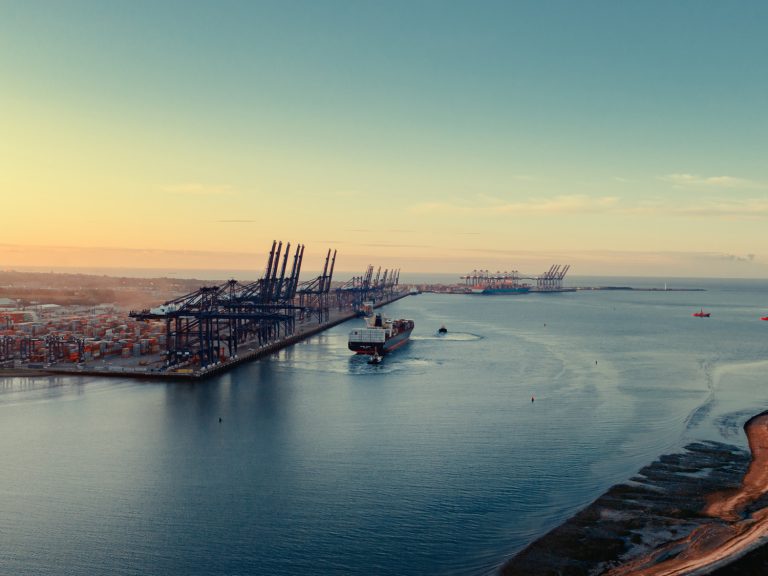
Date:
View from the coast – I see no ships!
Last weekend may be the first one our Transport Manager, Simon Balfe, hasn’t seen a Ultra Large Container Vessel (ULCV) on a berth at Felixstowe, but that hasn’t deterred the port from investing in its capacity to handle more of these gargantuan craft. Many of which are en-route, bunched-up after the Suez blockage.
ULCV’s are the giants of the global container ship fleet, with a typical length of 400m, a width of 59m, draft of 14.5m, and a capacity of 18,270 TEU. An example of one of these vessels, that you will be familiar with, is the Ever Given, to put into perspective their scale.
Hutchison Ports, the owners of the port of Felixstowe has completed strengthening and dredging works to Berth 7 to 16.5m at its Trinity Terminal and is planning further increases to the depths at Berths 6, 8 and 9 up to 18m.
In addition to the berth upgrades, Felixstowe will extend the outreach of 10 quay cranes to 23 boxes wide on Berths 6 & 7, in response to the increasing size and depth of the world’s largest container vessels.
The extra crane capacity would be very welcome by the port now, with the impending arrival of so many vessels, including ULCV’s, delayed by the recent grounding of the vessel in the Suez Canal.
The impact of the Canal’s closure is already beginning to be felt in the UK’s supply chain infrastructure, with Southampton halting the return of empty containers, in a an attempt to minimise terminal stacks, ahead of the impending surge and – in recognition of supply and demand mechanics – hauliers are imposing a minimum of £50 surcharges, to guarantee vehicle bookings.
British industry has been warned to brace for weeks of disruption as the impact of the Suez Canal blockage hits UK ports, potentially creating shortages of food and materials.
The British Ports Association and UK Major Ports Group (UKMPG) have jointly written to multiple trade associations including supermarket representative the British Retail Consortium and MakeUK, highlighting their “significant concern”.
In the letter, Richard Ballantyne, BPA boss, and Tim Morris, chief executive of UKMPG, said: “The ripple effects of the closure have yet to reach our shores. Up until this point UK ports have been working as normal, that will now change.
The ports warn that they are anticipating a steep ramp up and a very busy period over the subsequent two or three weeks, as vessels caught in the Suez congestion will arrive in short order.
Roughly a quarter of the 400 vessels caught up in the Suez congestion have been container vessels, the biggest of which make multiple port calls in Europe, which means that ports all across Northern Europe will experience the same demand surge.
The ripple effect of the Suez situation continues to be felt and will be for some time affecting global trade and supply chains. Metro continue to manage and monitor expectations and report on reliable data and schedules, which at times can be difficult to obtain from the shipping lines themselves.
We are proactively checking vessels and consignments to container level daily and update our clients on transit and schedule changes.
For further information and detail please contact Grant Liddell or your account manager, for immediate and accurate information during this turbulent situation.
